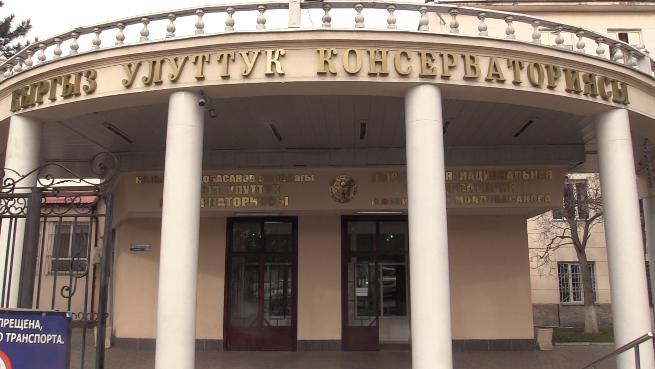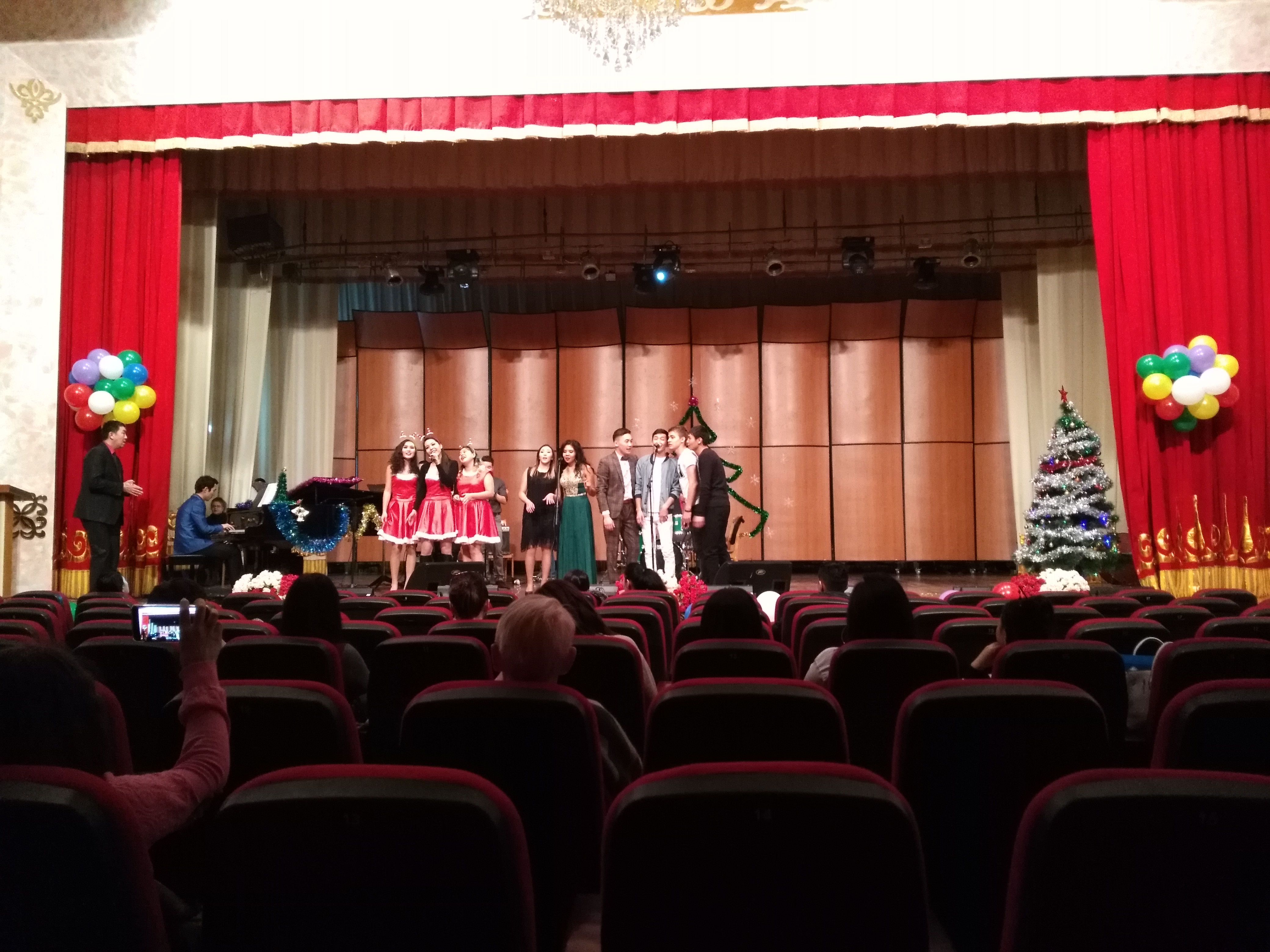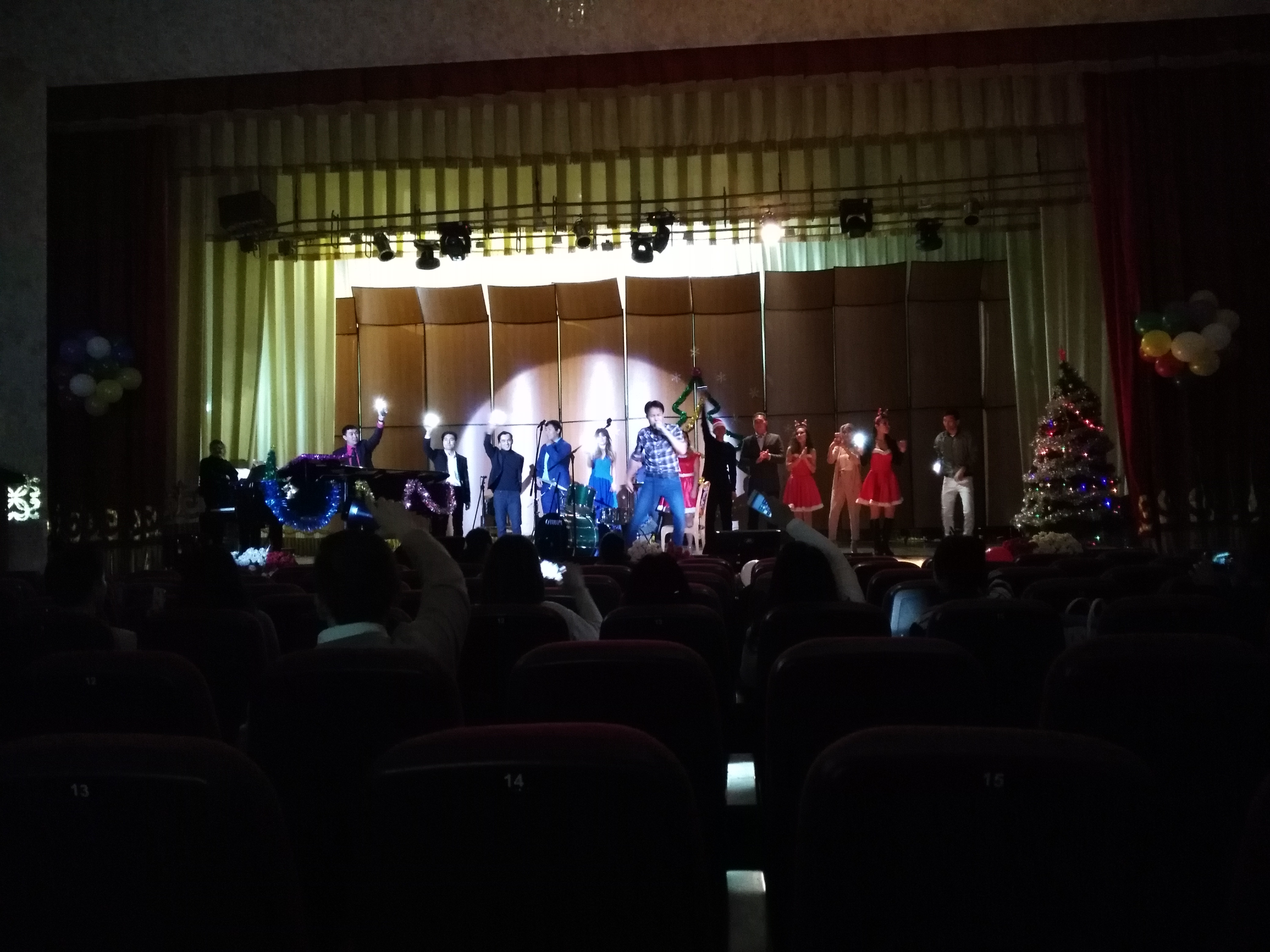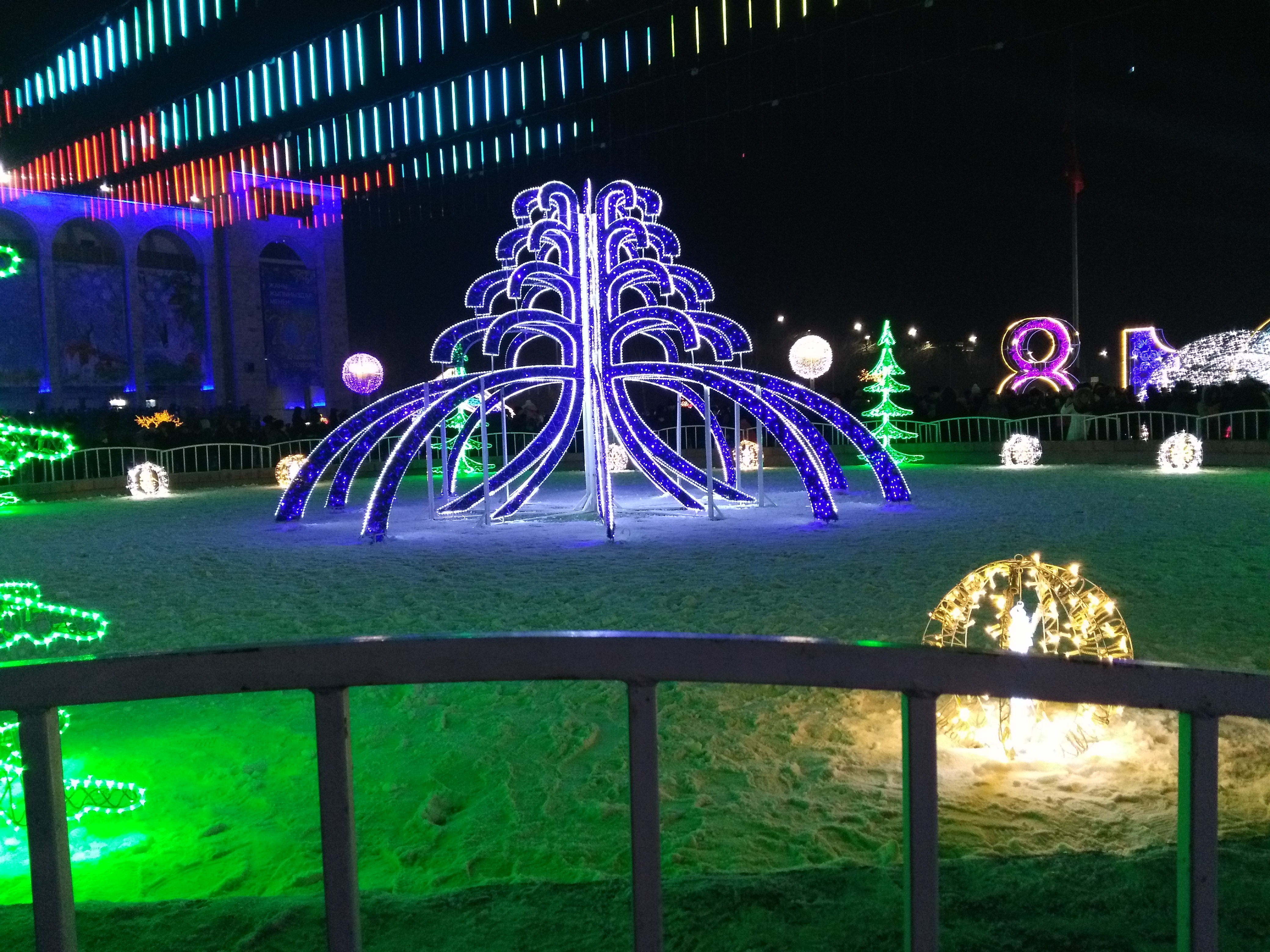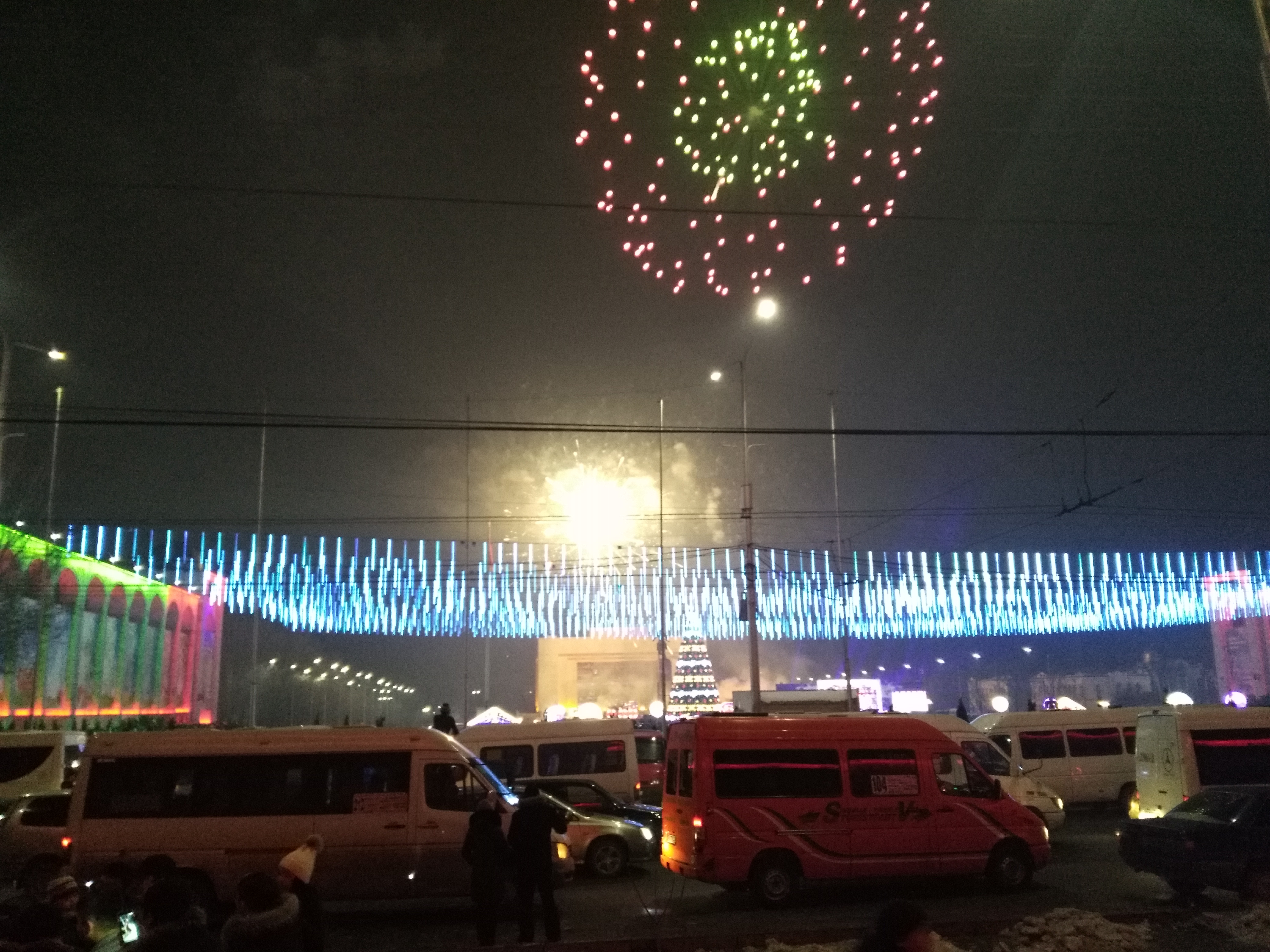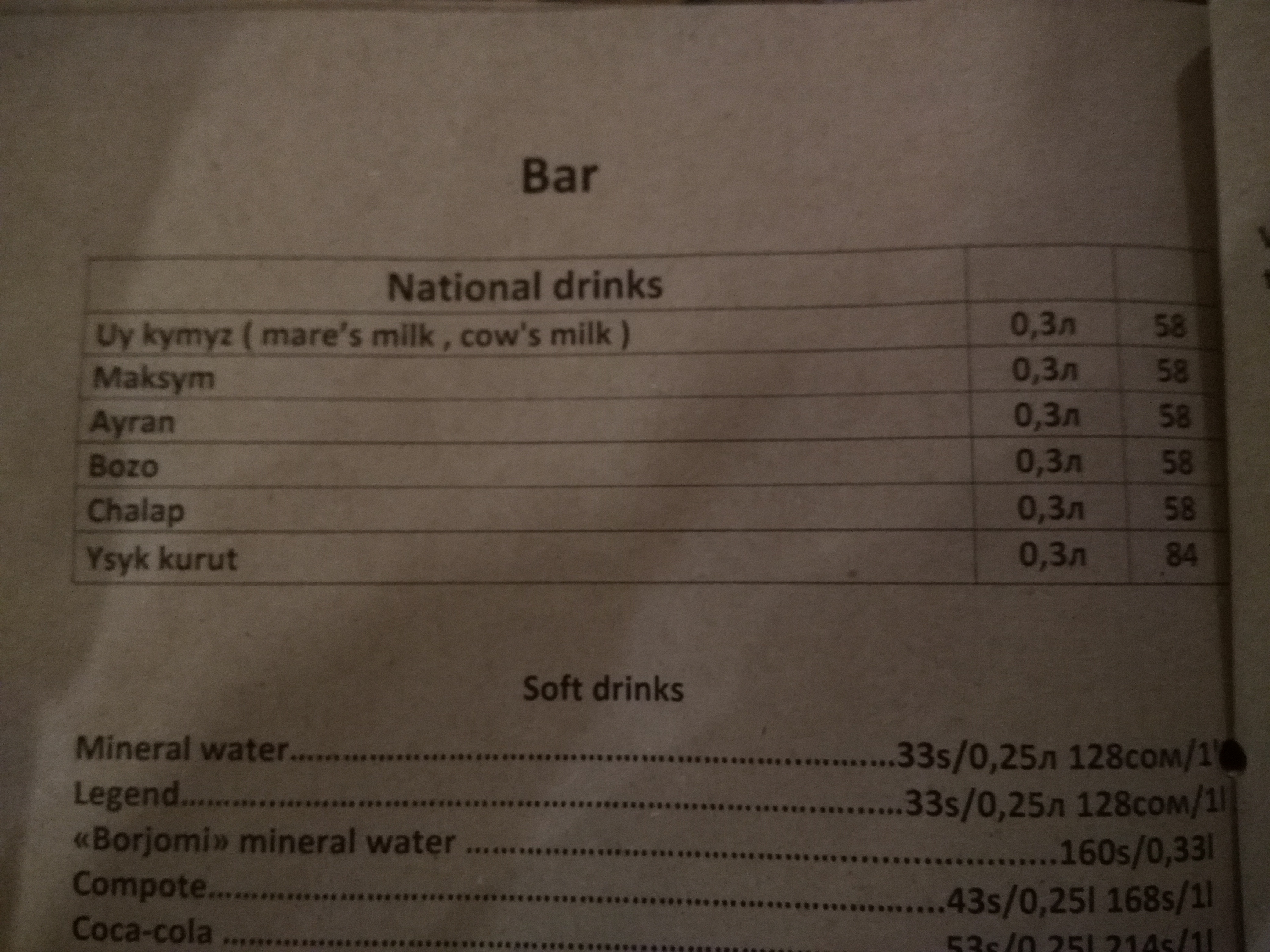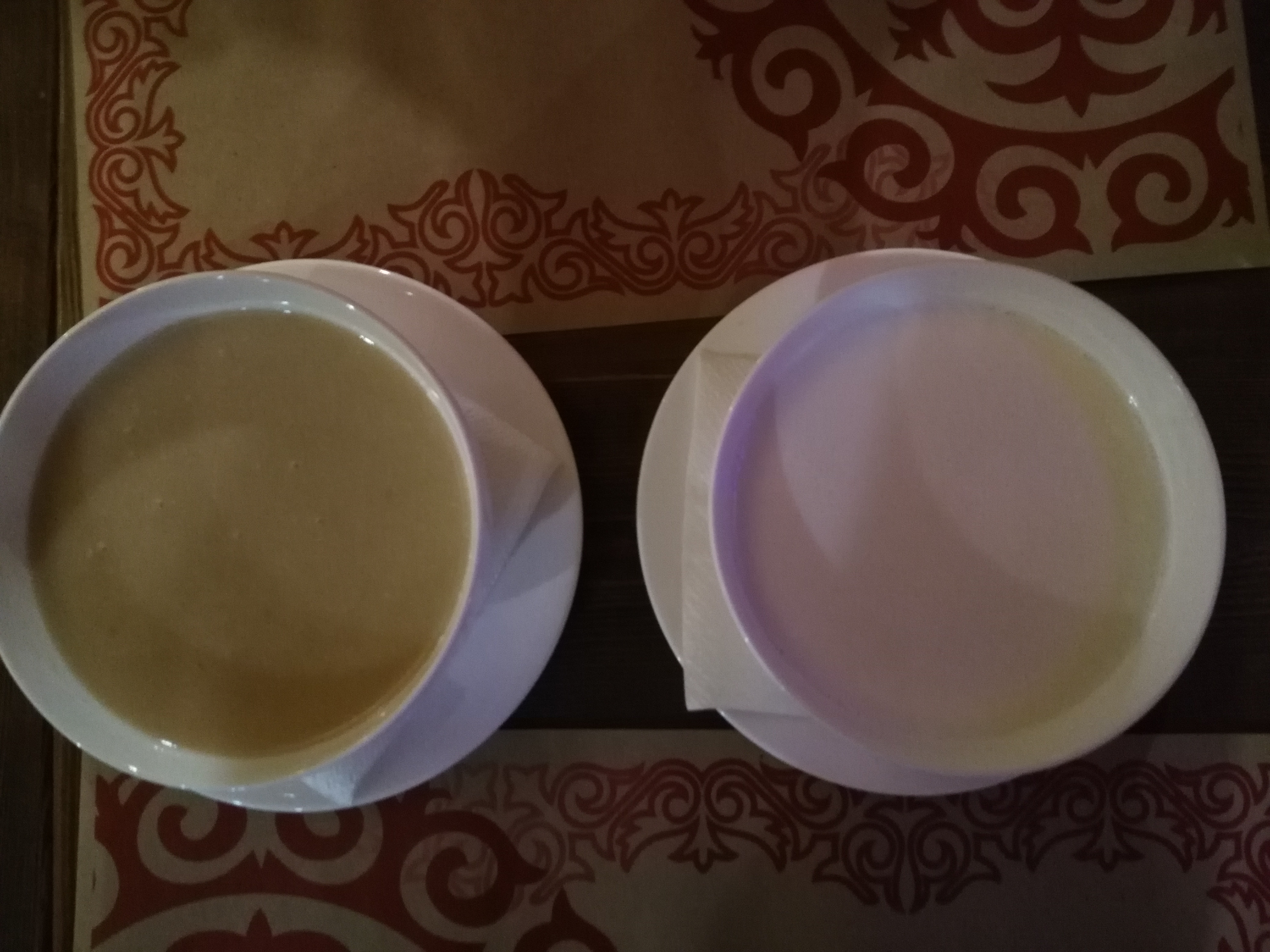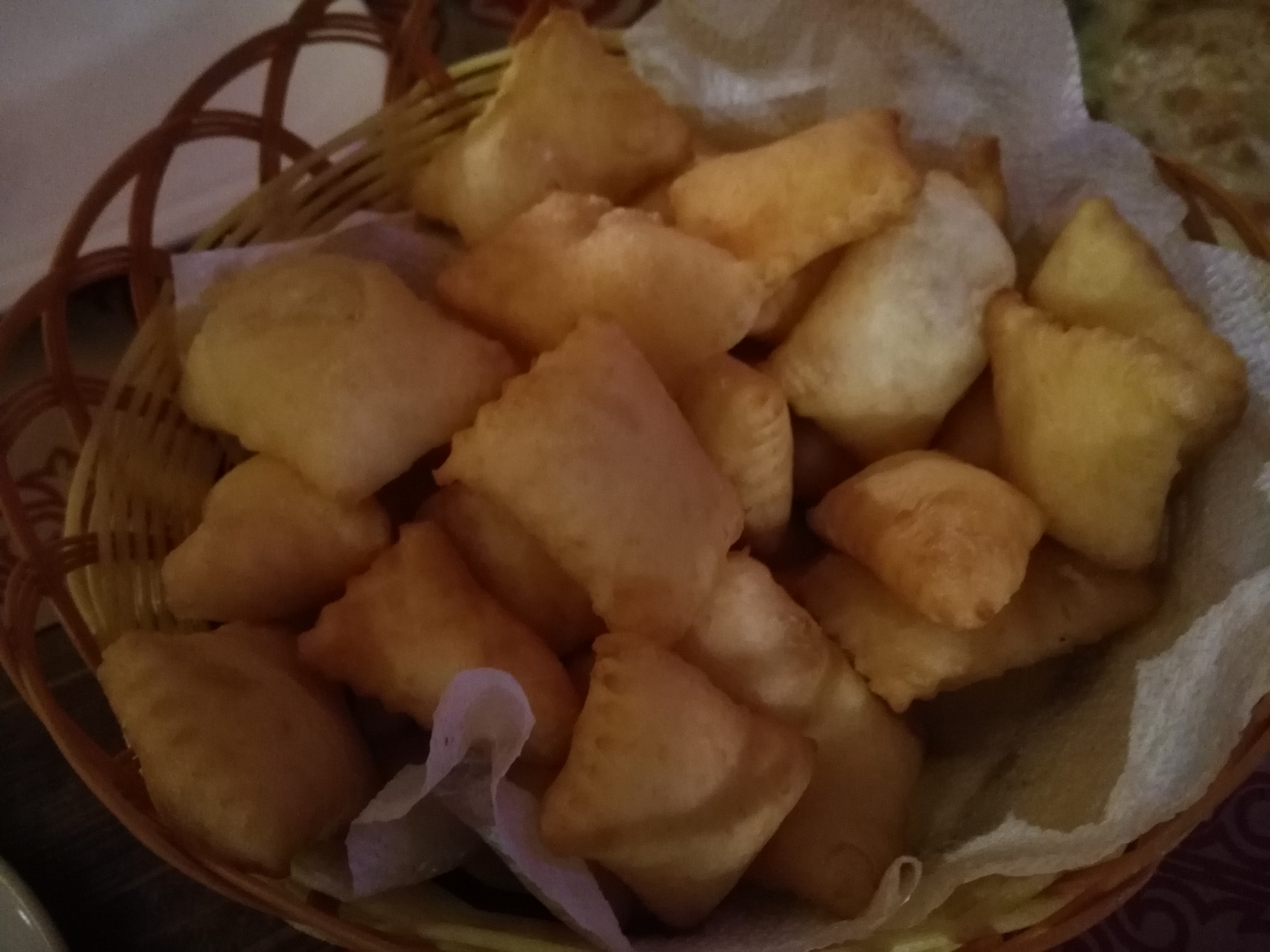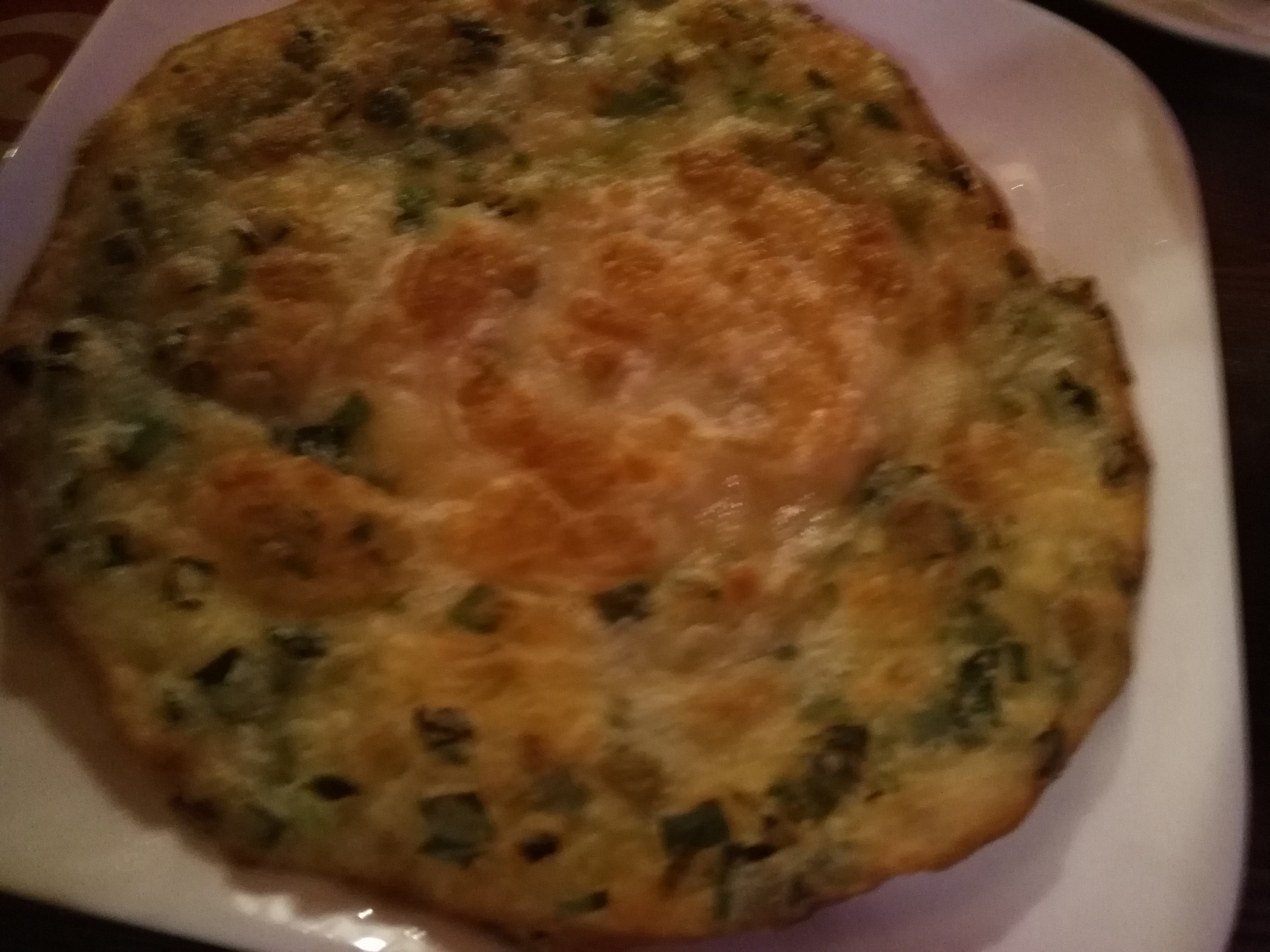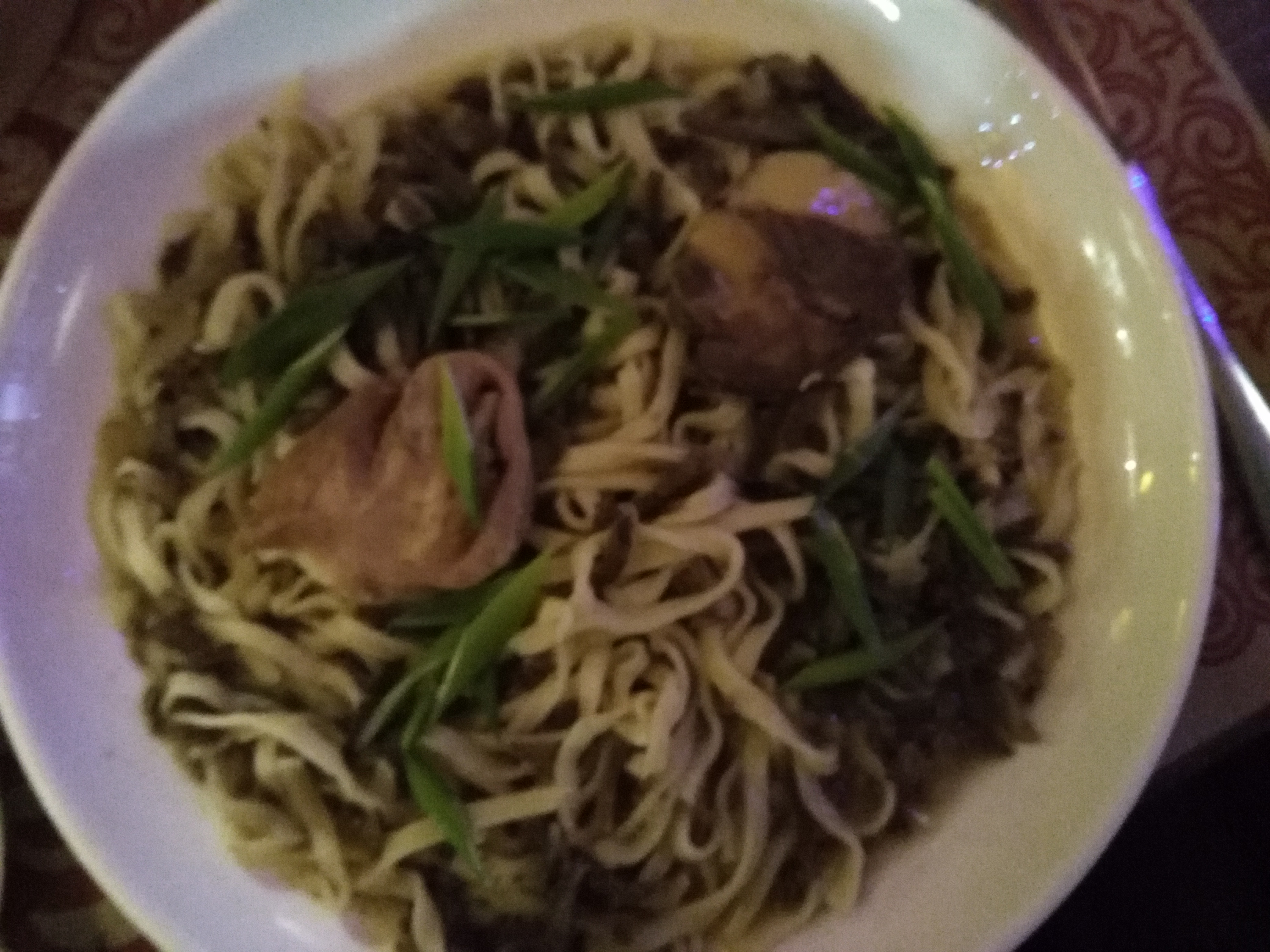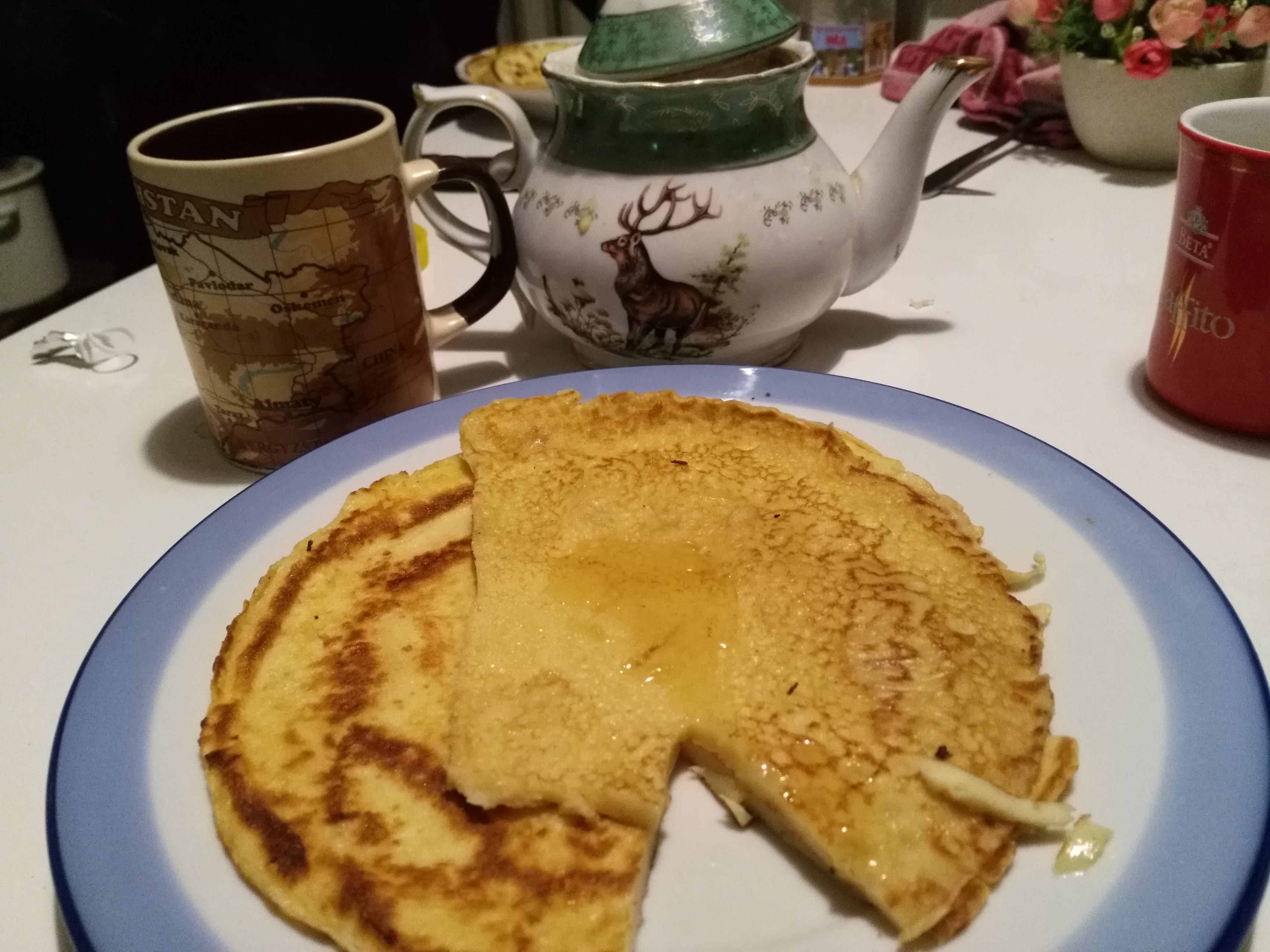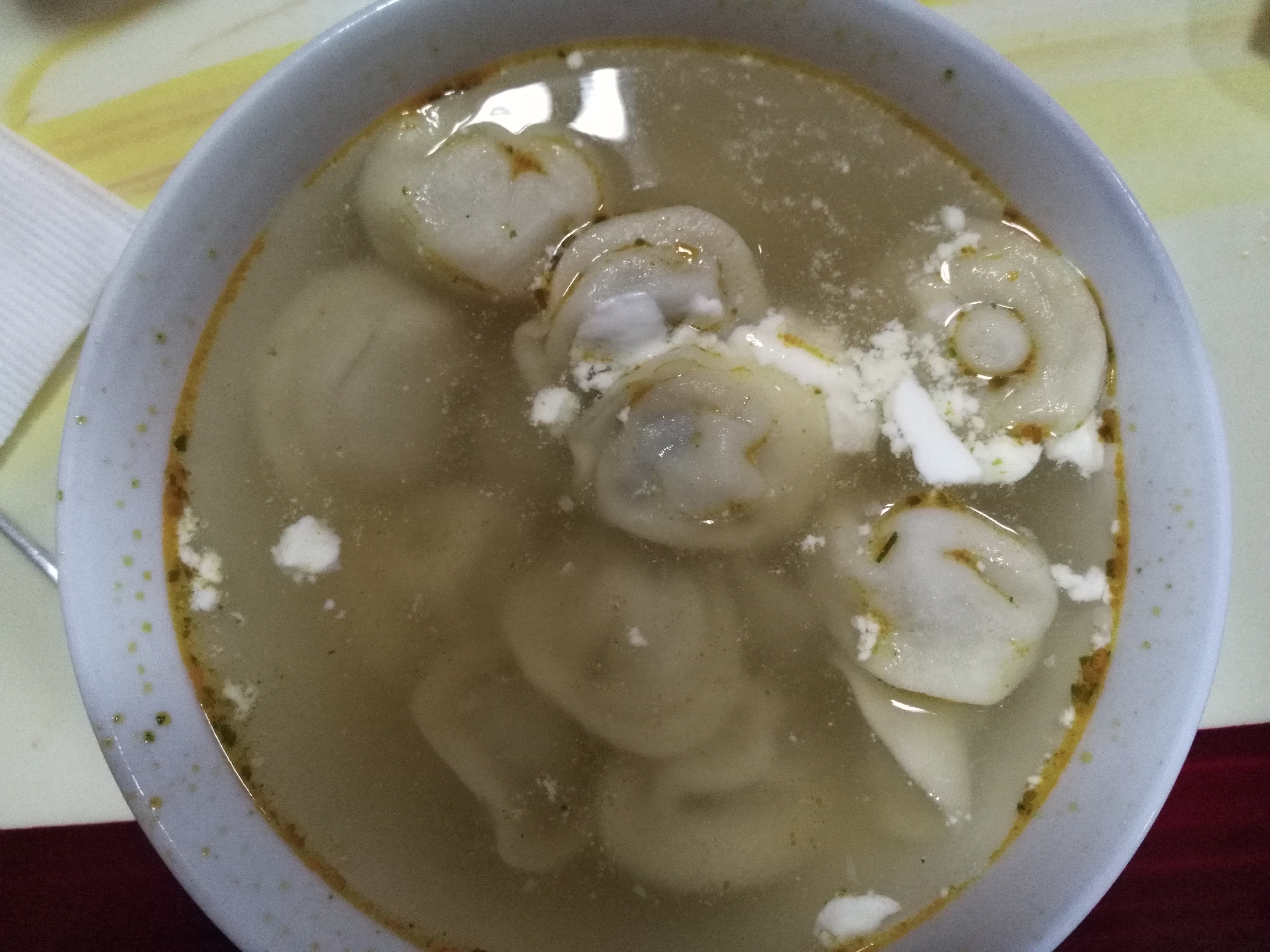Horse Meat and Happy Holidays
31 Dec 2017
Reading time ~10 minutes
In Bishkek, it turns out that New Years according to the Gregorian calendar is the biggest occasion to celebrate (I add the qualifier “Gregorian” because there is another “New Year’s” celebration apart from the Gregorian New Year’s that is known as “Nowruz” in Kyrgyzstan and several other countries in the region and surrounding regions). Neither Eid ul-Fitr nor Christmas seems to pose a real threat to the celebrational supremacy of the Gregorian New Year’s. It seemed to me that half of Bishkek’s population was out and about on New Year’s eve, particularly at Ala-Too Square where all the magic was at including live performances, Christmas decorations, fireworks, people dressed up in all sorts of costumes, little babies driving baby cars, and more. The public celebrations lasted more or less until fifteen minutes after the New Year’s Eve countdown with the last batch of fireworks had finished wreaking its havoc in the night sky. The celebration at Ala-Too square featured one to many Eurobeat musical acts for my taste, but what more can one ask of a free New Year’s eve extravaganza?
Interviews in Bishkek
Maksim Snegurov, vocalist
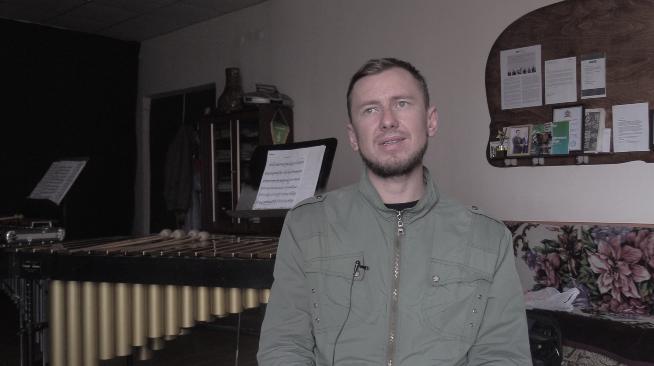
Maksim Snegurov is a vocalist and convert to Islam. This spring marks his entry into formal musical studies at the Kyrgyz National Conservatory, a rather popular destination for students of music as the only music conservatory in all of Kyrgyzstan. Maksim has been making it happen musically since early childhood. Both his parents were formally trained in music, but he’s mostly taught himself to sing and began life as a professional musician around age 15. Before he converted to Islam at age 12, he was a fairly committed Christian along with most of the rest of his family. What I found especially enlightening about Maksim’s story is that one of the initial draws to Islam for him was the sound of the adhan or Islamic prayer call. He fondly recalls walking home from primary school to the sound of the adhan, allured by it’s beauty and power in invoking God-consciousness in people. Maksim emphasized to me that he’s felt very fulfilled and well-supported since his conversion to Islam. His choice to embrace the new religion was not met without resistance from family, however, as his uncle’s wife would occasionally scold him for reading the Quran. Despite such opposition, Maksim has remained steadfast in his faith and true to his Islamic obligations. He told me that he’s encountered anti-arts rhetoric and propaganda from numerous Muslims from time to time, but he generally dismisses such criticisms as misguided as he believes that ours is the “age of miseducation and misinformation”. Despite being critical of people and things as he saw fit, I considered it good form that Maksim admitted to not being qualified to judge others for their actions or make pronouncements regarding the legitimacy of music in Islam on a whole. He ended our interview by telling me that he will never give up his passion for music. He finds enough evidence in the example of the Prophet Muhammad, his studies of the Quran, and his own experiences and intuitions to vindicate his love for the arts.
Jamaldin and Aman from “Jdin”

My next interview was a double threat featuring drummer Jamaldin and one of the saxophonists, Aman, of the band Jdin. As with Jonoterbakar back in Indonesia and Nadir back in Malaysia, Jdin is comprised of both Muslims and non-Muslims (including atheists). To the progressive, college-age American Muslim who’s always been surrounded by a harmonious blend of ethnic and religious diversity, Muslims and non-Muslims enthusiastically collaborating in a shared creative space is likely to be seen as a non-issue. Nevertheless, a certain segment of Muslims actually discourage Muslims from interacting with non-Muslims on a nonsuperficial level as a preventative measure of sorts against potential spiritual corruption and immoral temptations induced by associating with non-believers. My intuitions tell me that for every Muslim who believes Muslims should not hang with non-Muslims based on interpretations of Islamic scripture, there is likely at least one more Muslim who arrives at the complete opposite conclusion on the matter based on interpretations of the exact same scriptural sources. Anyhow, back to Jamal and Aman. Neither member of the band have completed formal Islamic education and they certainly could not pass as devout Muslims. Nonetheless, they both firmly identified as Muslims coming from thoroughly Islamic households. Both Jamal and Aman re-echoed the common concern on part of proponents of the arts in Islam that most Muslims’ anti-arts convictions arise from naivete, ignorance, lack of education, or misinformation. Unfortunately, this seems to be the fundamental argument many arts-phobic Muslims fling at Muslim proponents of all things audio-visual. This predicament points to the greater, ubiquitous phenomenon of Muslims laying claim to one camp or stream of Islam countering the beliefs or ideologies of another camp or stream of Islam by attacking their well-informedness or credibility. I have come across the notion that this phenomenon would perhaps be mitigated by the existence of an official pan-Islamic authority a la the Hierarchy of the Catholic Church.
As a young boy, Jamal was periodically approached by local moldo’s (Islamic teachers in Kyrgyzstan) who would tell him that music was strictly forbidden in Islam. Similar to Isaev from last week’s post, such adults would kindly inform him, the young boy that he was, that he would burn in hell for playing music. Such encounters can be deemed as nothing short of abuse in the West, and, as one might imagine, they left a rather traumatizing mark on young Jamal. Presently, Jamal’s got a fair ammount of ammo to fend off the kinds of people that told him off as a child. Usually, all he has to do to shut down the average arts-phobic Muslim is ask them to cite specific quranic verses or hadith selections that justify their anti-arts pronouncements. Easy enough. In the course of our discussion, Jamal also emphasized that accepting Islam need not necessitate a denial of one’s cultural heritage including pre-Islamic traditions and customs. This line of thinking is a red flag for most puritanical Muslim types who banish most beliefs, practices, and things today that did not exist during the Prophet Muhammad’s time in 7th century Arabia into the vile domain of bid’ah (heresy/innovation). Aman hasn’t experienced anything nearly as direct as what Jamal faced from certain anti-music Muslims, but he’s certainly been aware of the issues at hand for some time and thus had his fair share to contribute on the topic during our meeting. Aman noted that the issue of arts permissiblity in Islam is far from being at the forefront of Islamic discourse among religious figures and intelligentsia in Kyrgyzstan. This is a very important point which I imagine to be true of virtually all Muslim majority countries where the finer details of doctrine surrounding criminal law, marriage law, inheritance law, and gender roles in Islam commonly take precedence. Jamal and Aman are a part of today’s wave of progressive, young Muslims who unapologetically balance their commitments to worldly and spiritual pursuits. Both men recognize that it’s the twenty-first century and that people should be free to choose what they wish to worship, be it the monotheistic God, several gods, or tastes in music.
Fun fact: Jamal likes to recite an Islamic prayer before the start of any of Jdin’s concerts - I hear that the rest of Jdin’s bandmates including the atheistic ones put up with this time after time.
Nariste Alieva from “Cultura Nomada”

Cultura Nomada is a foundation dedicated to the “formation and development of a new intellectual and cultural space with the aim of preserving, integrating and developing contemporary art and literature in Kyrgyzstan.” The foundation takes responsibility for running a one-of-a-kind electronic journal and equally impressive electronic library in Kyrgyzstan in addition to hosting events and art-making at the Cultura Nomada Multimedia Arts Studio. The founder of Cultura Nomada, Nariste Alieva, is someone who at one point in time as a young girl would regularly conduct her own form of prayer intended for what she considered to be the God of Islam and the God of Christianity despite neither of her parents being religious. Ms. Alieva, told me that it was the spirituality of her grandmothers coupled with religious books, European art, baroque music and medieval iconography, in tandem with religious cartoons that sprang up in Kyrgyzstan with the collapse of the Soviet Union in 1991 that fueled her infatuation with religion. As with several other people I’ve met with here in Bishek, Ms. Alieva was once a foreign-exchange student at a high school in the US for one year enabled by the highly selective FLEX (Future Leaders Exchange) program. While in the US, she was hosted by a church-going Baptist family, whom she sincerely thanks for having inculcated in her an appreciation for meditation and a thirst for spiritual knowledge. Throughout her largely self-directed relationship with Islam and Christianity, Ms. Alieva shared with me a number of matters that concerned her regarding the appropriateness of her varied arts and literary pursuits, stemming from a combination of religious, cultural, and filial pressures. She was exposed to various anti-arts ideas inspired by Islamic doctrine from a young age ranging from the illegitimacy of figurative illustrations to general proscriptions on human creativity because creativity was to be regarded by faithful Muslims as solely within Allah’s domain. Even more, she would at times feel sinful for feeding her love for books on medieval Christendom. In addition to personal conflicts induced by religion, Ms. Alieva pitted herself against her mother for her wish to study music and make art from a young age. Her mother would tell her that girls were not supposed to be creative or artistic and rather ought to be obey societal expectations and simply grow up to be “normal” wives and mothers. I found it remarkable that from such a young age, Ms. Alieva fed her passions for the arts, religion, and literature almost completely without models/mentors and of her own accord. Presently, she does not give her allegiance to any particular organized religion. However, Ms. Alieva has become increasingly interested in spiritual traditions such as Tengrianism (aka. Tengriism) that are native to the Kyrgyz nation and other nations in Central Asia. Though she no longer regularly prays to Allah, Nariste assured me that she could not be more appreciative of and respectful towards Islam’s artistic and intellectual traditions that have bred peace and pluralism throughout history. She expressed her grave disappointment with the current state of Islamic affairs in Muslim majority countries such as Kyrgyzstan on matters such as religious extremism and what she perceives to be a depreciation of traditional arts and culture. She contended that native Kyrgyz spiritual traditions such as Tengrianism have been noticeably affected by an orthodox strain of Islam which is slowly but surely running deeper and deeper into the fabric of Kyrgyz society. Indeed, Ms. Alieva mentioned that many of today’s baksy/baksu (traditional Kyrgyz shamans) inflect their beliefs and practices with Islamic concepts and principles, advocating for their clients and people in general to be Muslim rather than prioritizing their roots.
Tasty Treats in Bishkek Pt. 3
Yummy in the tummy.
